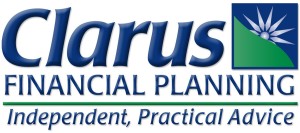Year-end Financial Planning Strategies
Most “Fiscal Cliff” financial strategies for year-end reviews are just common-sense financial planning strategies. Financial crises seem to be the norm, and the possibility of rising taxes will be real for many years to come. With that in mind, here are some timeless financial suggestions that should be reviewed annually:
- Tax-advantaged Accounts: Maximize contributions to traditional and Roth 401(k)s, IRAs, and 529 college savings plans.
- Tax-efficient Rebalancing: Use tax-advantaged accounts to rebalance an asset allocation or to sell appreciated positions. Use index funds and index ETFs, which have high potential for tax efficiency.
- Asset Location: Tax-efficient investments belong in taxable accounts and tax-inefficient investments belong in tax-advantaged accounts.
- Tax Loss Harvesting: Realize losses on stock while substantially preserving your investment position. There are several ways this can be done. For example, you can sell the original holding, and then buy back the same securities at least 31 days later. Contact Clarus for details.
- Roth Conversion: Convert money from a traditional IRA to a Roth IRA if doing so is expected to produce better long-term tax results for you and your beneficiaries. Distributions from a Roth IRA can be tax-free but the conversion will increase your adjusted gross income in the year you convert.
- Required Minimum Distributions: Take your RMD from your IRA or 401k plan (or other employer-sponsored retired plan) if you have reached age 70 1/2. Failure to take a required withdrawal can result in a penalty of 50% of the amount not withdrawn. If you turned age 70 1/2 in 2012, you may be able to delay the required distribution to 2013, but if you do, you will have to take a double distribution in 2013—the amount required for 2012 plus the amount required for 2013. Think twice before delaying your distribution—bunching income into 2013 might push you into a higher tax bracket or have a detrimental impact on various income tax deductions that are reduced at higher income levels.
- Flex Spending Accounts: Increase the amount you set aside for next year in your employer’s health flexible spending account (FSA) if you set aside too little for this year.
- W-4 Withholding: Increase your withholding if you are facing a penalty for underpayment of federal estimated tax. Doing so may reduce or eliminate the penalty.
- Give Gifts: Use gift and estate tax exemptions while current tax laws remain favorable.





